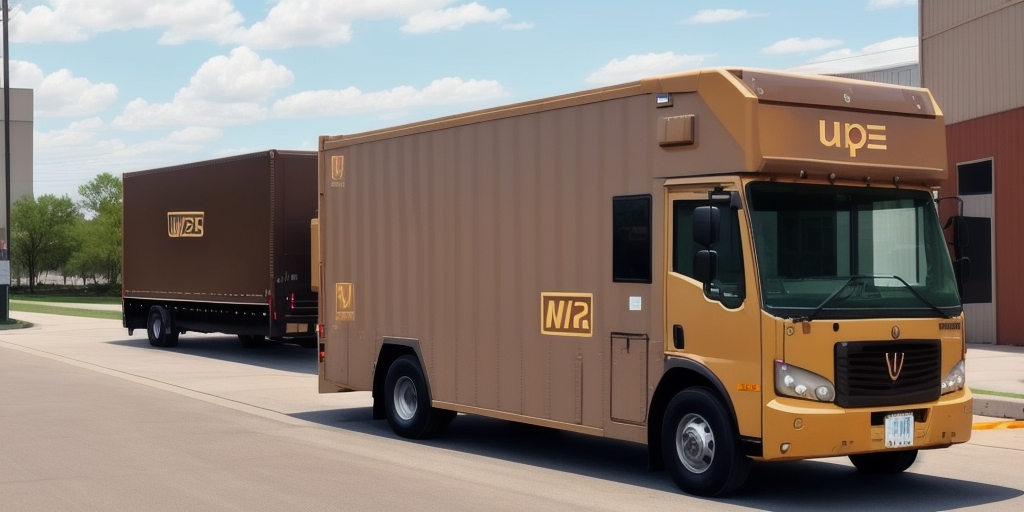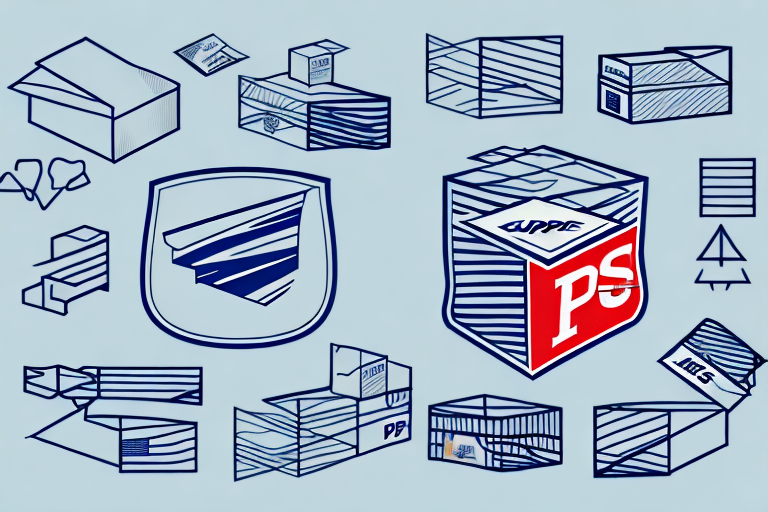Understanding the Late Payment Fee Charged by UPS
When it comes to shipping goods, UPS stands as one of the largest and most trusted providers in the market. However, an issue that can arise when working with UPS is the late payment fee they charge. Understanding the reasons behind these fees and how they can impact your business is crucial for managing your shipping budget and avoiding extra charges. Let’s delve deeper into what these fees entail, why they’re imposed, and strategies to avoid them.
Reasons Behind UPS Late Payment Fees
Purpose of Late Payment Fees
UPS implements late payment fees to encourage customers to pay their invoices on time. These fees serve as a penalty for delayed payments and are added to the total amount owed. The primary reasons for these fees include:
- Administrative Costs: Covering the expenses associated with chasing payments and managing unpaid bills.
- Cash Flow Maintenance: Ensuring a steady inflow of funds to avoid financial strain.
- Loss Recovery: Compensating for any financial losses incurred due to delayed payments.
UPS Payment Policies
UPS maintains a clear policy on late payments outlined in their terms and conditions. Customers are encouraged to thoroughly review these policies to prevent unexpected charges. UPS offers various payment options, including online payments, automatic payments, and payment plans, which can help in avoiding late fees.
For more details on UPS payment policies, refer to the UPS Payment Options.
Impact of Late Payment Fees on Shipping Costs
Financial Implications
Late payment fees directly increase your overall shipping costs. Even minor percentage-based or flat fees can accumulate over time, significantly impacting your profit margins. For businesses shipping in large volumes, these fees can become substantial, thereby affecting the bottom line.
Business Relationships
Consistently missing payments can tarnish your relationship with UPS. A history of late payments may lead UPS to categorize your account as high-risk, potentially resulting in restricted services or even termination of your account. This disruption can lead to delays and increased costs as you seek alternative shipping providers.
Maintaining timely payments fosters a strong partnership with UPS, ensuring reliable service and potential opportunities for negotiating better rates in the future.
Consequences of Non-Payment
Account Restrictions
Persistent late payments may lead UPS to place your account on hold, preventing you from using their services until the outstanding balance is settled. This can cause significant operational disruptions, especially for businesses heavily reliant on UPS for logistics.
Credit Implications
Unpaid bills might be forwarded to collections, negatively impacting your business credit score. A poor credit score can hinder your ability to secure loans or credit lines, limiting your business's financial flexibility.
According to the Federal Reserve, maintaining a good credit score is essential for accessing favorable financing terms and supporting business growth.
Common Reasons for Late Payments and Prevention Strategies
Cash Flow Issues
Many businesses struggle with cash flow management, making timely payments challenging. To mitigate this:
- Set Up Automatic Payments: Automate your billing to ensure payments are made on time.
- Implement Payment Reminders: Use accounting software to send reminders before due dates.
- Consult Financial Advisors: Seek professional advice to optimize your cash flow management.
Communication Gaps
Miscommunication between departments can lead to missed payment deadlines. To avoid this:
- Regular Meetings: Hold frequent meetings to discuss financial obligations.
- Clear Invoicing Procedures: Ensure invoices are promptly sent to the responsible parties.
- Internal Notifications: Use internal communication tools to alert relevant teams about upcoming payments.
Disputes Over Services
Disagreements regarding the quality of services or goods can delay payments. To address this:
- Prompt Issue Resolution: Address disputes immediately to prevent payment delays.
- Maintain Good Vendor Relationships: Foster strong relationships to facilitate smoother negotiations.
- Clear Contract Terms: Ensure all service agreements are clearly defined to minimize misunderstandings.
UPS Late Payment Fee Structure
Fee Calculation
UPS charges late payment fees based on either a percentage of the total bill or a flat fee, depending on the amount owed and the specific circumstances. The fee structure can vary by country, so it’s essential to consult your local UPS office for precise rates.
For instance, according to [UPS Terms and Conditions](https://www.ups.com/assets/resources/media/en_US/Terms-and-Conditions.pdf), the late fee in the United States is typically 1.5% of the outstanding balance per month.
Grace Period and Interest
UPS generally offers a grace period of around 10 days after the due date. If payment is not received within this period, the late fee is applied. Additionally, UPS may charge interest on the overdue amount, further increasing the total debt.
To avoid these additional charges, it is advisable to:
- Set Up Automatic Payments: Ensure timely payments without manual intervention.
- Pay Invoices Promptly: Address invoices as soon as they are received.
- Monitor Billing Statements: Regularly review statements to stay aware of due dates.
Strategies for Negotiating Late Payment Fees
Communication with UPS
If you find yourself unable to pay on time, communicate with UPS proactively. Explain the circumstances leading to the delay and present a plan for making the missed payment. Transparency and honesty can facilitate a favorable negotiation.
Highlighting Customer Loyalty
Emphasize your history with UPS, especially if you have a track record of timely payments. Demonstrating loyalty and a commitment to maintaining the relationship can encourage UPS to waive or reduce late fees.
Requesting Payment Plans
If immediate payment is challenging, request a payment plan or an extension. UPS may offer flexible arrangements that allow you to pay the outstanding balance in manageable installments, helping you avoid further penalties.
Managing and Monitoring UPS Billing Statements
Utilizing UPS E-Billing
UPS’s e-billing system offers real-time updates on your account, allowing you to view and manage your bills online. This tool helps ensure that you are aware of upcoming payments and can address any discrepancies promptly.
Integrating Accounting Software
Incorporate accounting software to streamline your billing process. Tools like QuickBooks or FreshBooks can automate tracking shipping expenses, setting reminders, and generating reports to keep your finances in check.
Regular Billing Reviews
Consistently review your shipping activity and billing statements to ensure accuracy. Use UPS’s Billing Analysis Tool to compare costs over time and identify trends or anomalies that may warrant further investigation.
The Impact of Late Payments on Business Credit
Credit Score Consequences
Late payments can significantly damage your business credit score, making it difficult to secure loans or favorable credit terms in the future. According to [Experian](https://www.experian.com/blogs/ask-experian/business-credit-score/), maintaining timely payments is crucial for a healthy credit profile.
Supplier and Vendor Relationships
Consistent late payments can strain relationships with suppliers and vendors. This may lead to stricter payment terms, such as requiring upfront payments, which can further impact your cash flow. Conversely, paying on time can build trust and foster long-term partnerships, potentially leading to better deals and collaborations.
Best Practices to Avoid Late Payment Fees
Automate Your Payment Processes
Setting up automatic payments ensures that your UPS bills are paid on time every month without manual intervention. This reduces the risk of forgetting due dates and incurring late fees.
Create a Payment Reminder System
Implement a system to remind you of upcoming payments. Utilize calendar alerts, email notifications, or accounting software features to stay informed about due dates.
Outsource Accounting Responsibilities
If managing finances in-house is challenging, consider outsourcing your accounting tasks to professionals. This can help ensure accurate tracking of expenses and timely payments.
Negotiate When Necessary
If you encounter financial difficulties, don’t hesitate to negotiate with UPS for more favorable payment terms or fee waivers. Effective negotiation can prevent additional financial strain.
Review Invoices Carefully
Carefully review all invoices for accuracy. Dispute any incorrect or unclear charges promptly to avoid unnecessary payments and fees.
Establish Strong Relationships with Customer Service
Build a good rapport with UPS’s customer service team. Regular communication can help resolve issues quickly and ensure that your payments are processed correctly.
Overall, understanding the late payment fees charged by UPS is essential for managing your shipping budget effectively. By implementing these strategies and best practices, you can avoid unnecessary charges, maintain a positive relationship with UPS, and support your business’s financial health.








